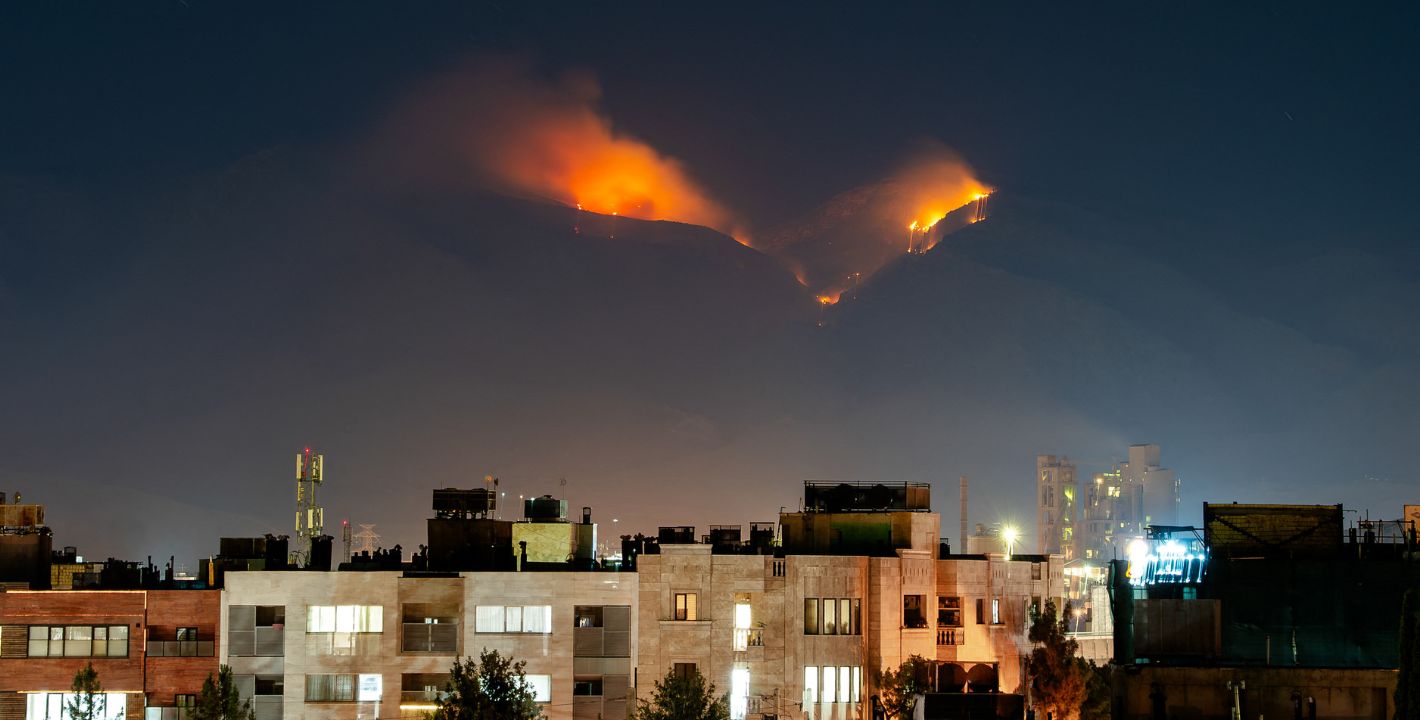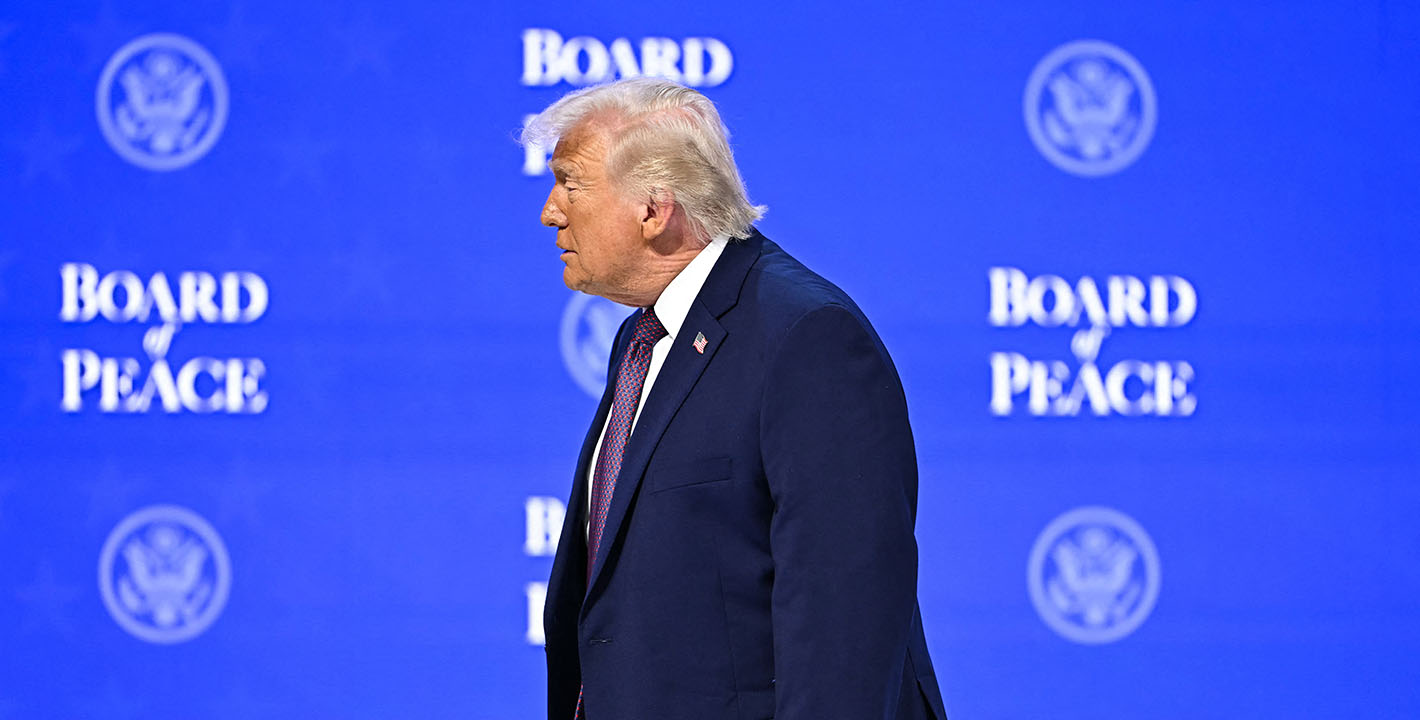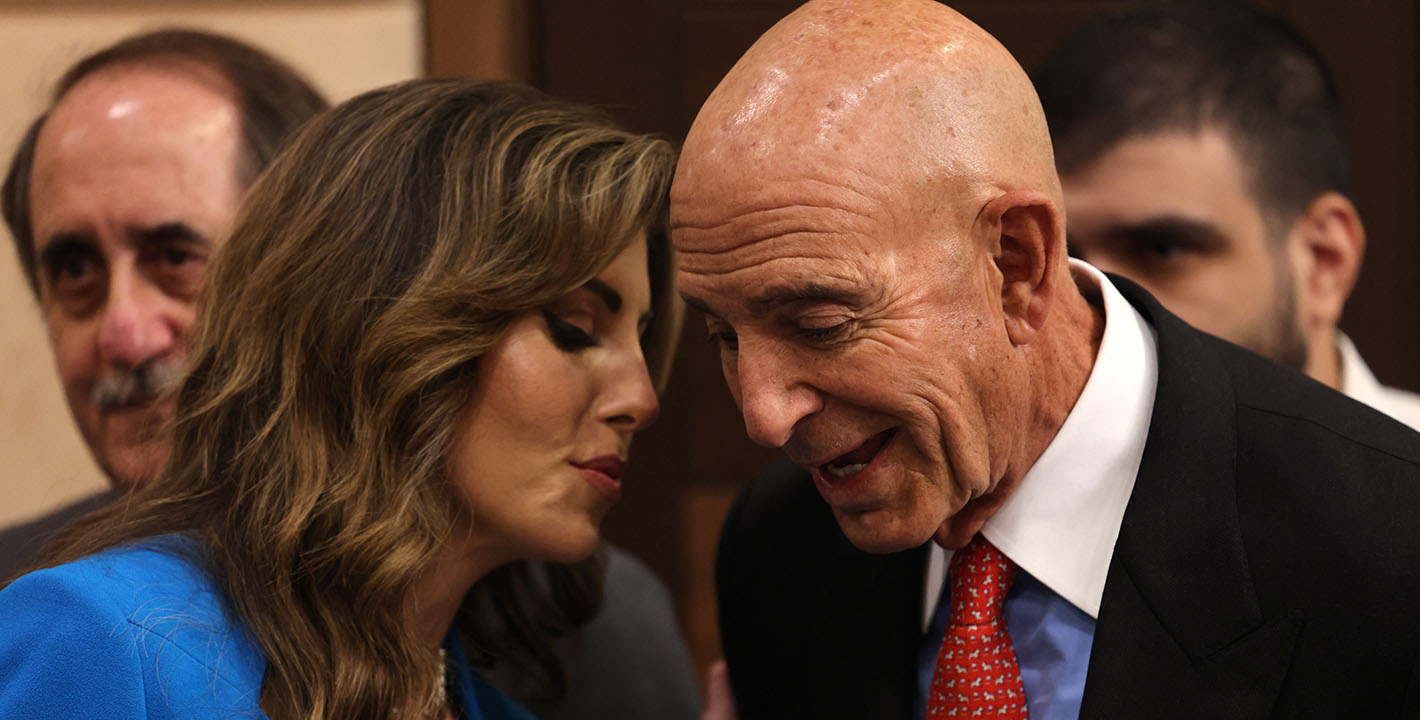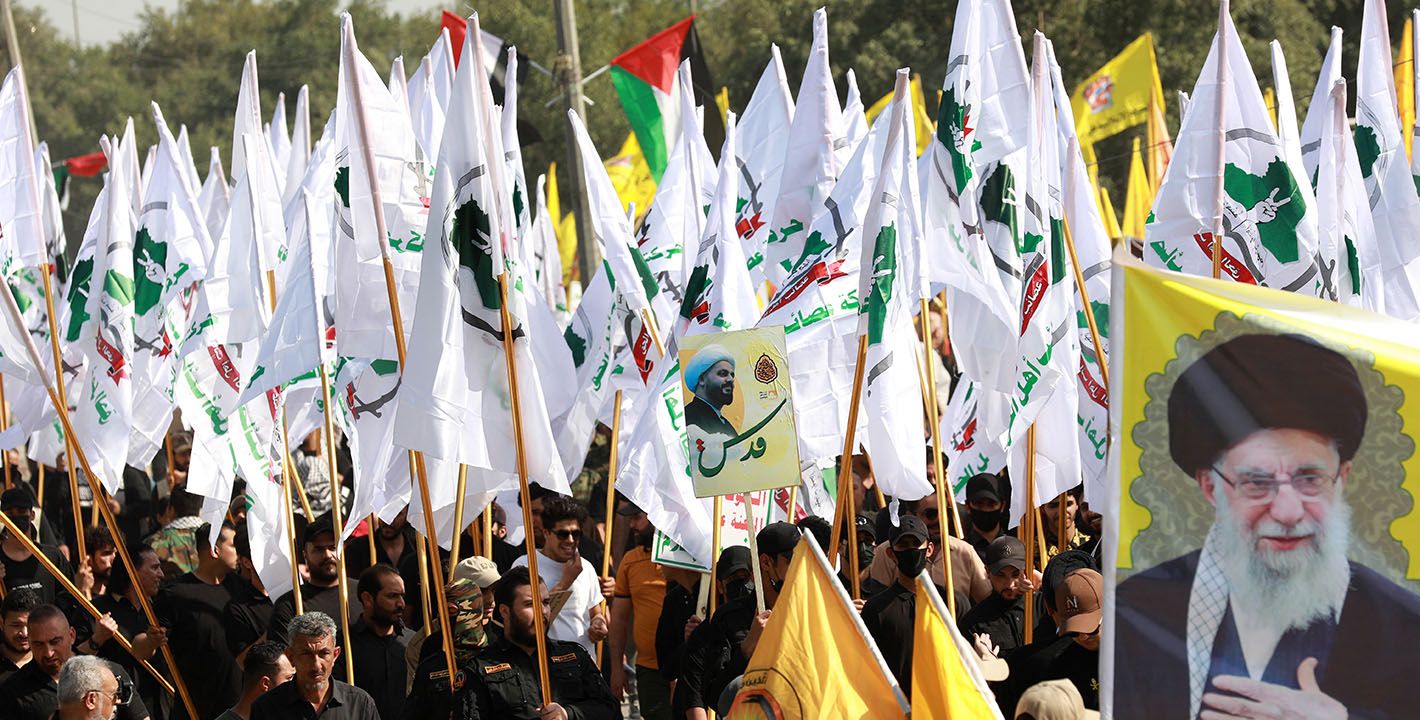Michael Young
{
"authors": [
"Michael Young"
],
"type": "commentary",
"blog": "Diwan",
"centerAffiliationAll": "",
"centers": [
"Carnegie Endowment for International Peace",
"Malcolm H. Kerr Carnegie Middle East Center"
],
"englishNewsletterAll": "",
"nonEnglishNewsletterAll": "",
"primaryCenter": "Malcolm H. Kerr Carnegie Middle East Center",
"programAffiliation": "",
"programs": [],
"projects": [],
"regions": [
"Lebanon",
"Israel"
],
"topics": []
}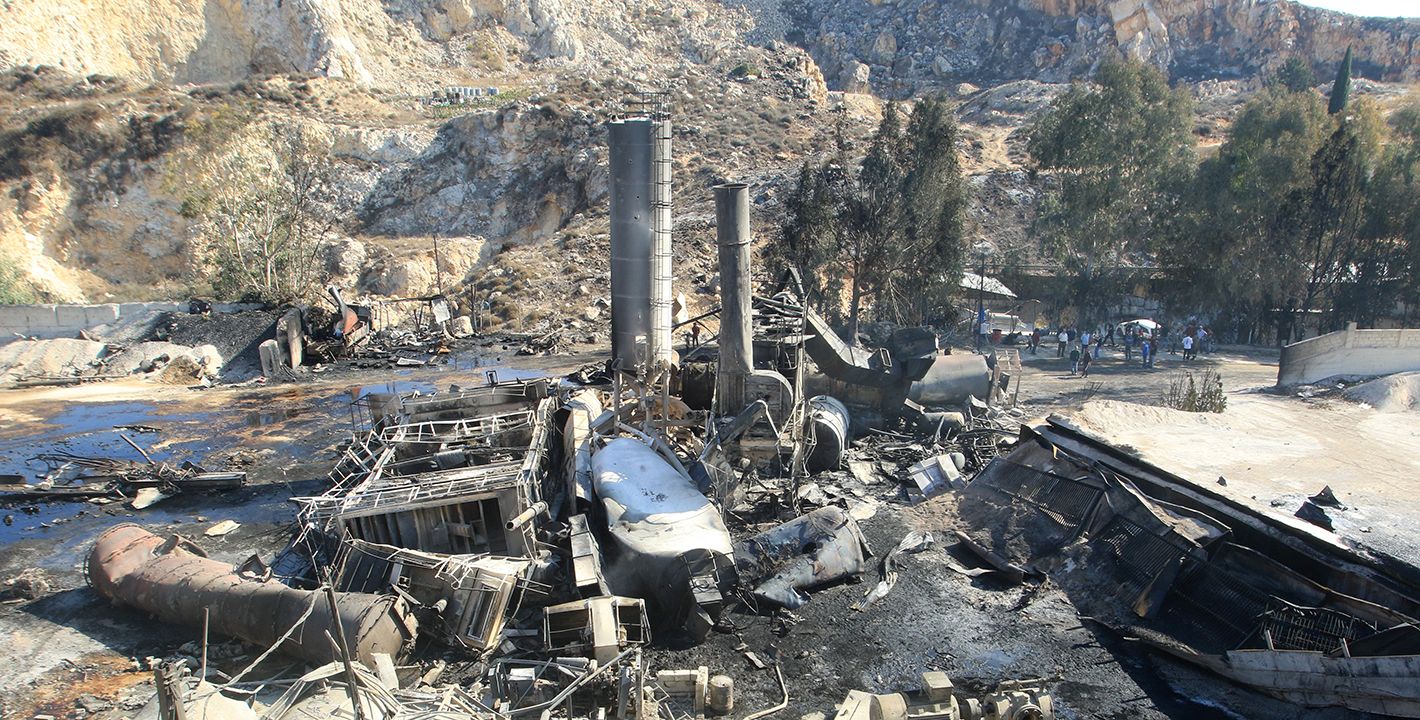
Source: Getty
Is a New Lebanon War Imminent?
While that’s the conventional wisdom, there are reasons to assume things may not be so simple.
One of the more amusing bon mots in circulation comes from the late left-wing British journalist Claud Cockburn, who once said, “Believe nothing until it’s officially denied.” We might add a variation on that remark, that goes something like this: “Believe everything until everyone confirms it.”
The thought comes to mind as more and more observers are assuming that a new Lebanon war is imminent. Their reasoning goes something like this: The Gaza war has ended, while in Lebanon Hezbollah has refused to disarm in line with the so-called ceasefire deal reached with Israel last November. Israeli Prime Minister Benjamin Netanyahu is looking for new wars, therefore has a perfect excuse to escalate in Lebanon, if only to delay a reckoning at home on his government’s errors in the run-up to the October 7, 2023, attack by Hamas.
Such a rationale sounds credible, and is why an increasing number of analysts are not asking if a new Lebanese war is coming, but when. However, is this conclusion necessarily true? We’ve grown accustomed to believing the worst about the Israelis after their mass murder campaign in Gaza, but that doesn’t necessarily lead to lucidity about all their actions. Let’s unpack this.
In recent weeks, the Israelis have engaged in actions that might indicate they’re readying for a military option in Lebanon. Just over a week ago, they organized maneuvers in northern Galilee, along the Lebanese border, amid mounting claims that Hezbollah was rearming. Almost daily, Israeli drones are killing Lebanese whom the Israelis allege are Hezbollah operatives, though it’s eminently clear that many civilians are being killed too, most recently on October 23. To some people, all this represents a steady escalation toward something bigger. Perhaps, but one can interpret Israeli abuses in other ways.
Take, for example, the rise in Israeli attacks on sites holding construction machinery, notably one located in Msayleh on October 11. A few days later, the Israelis followed up by destroying a cement production facility in Ansar. The aim apparently was not to prepare for combat, but to declare economic warfare on the population of the south. By destroying all vehicles and machines needed for reconstruction, the Israelis are telling the southern Lebanese that there is an economic price to pay for supporting Hezbollah and its refusal to disarm. This comes amid other indications that Israel is now focused on making life unbearable for southerners, including limiting their access to their own olive groves, bombing damaged homes at the first sign the owners are trying to make repairs, and creating conditions making tobacco cultivation, a vital agricultural sector for inhabitants of the border region, all but impossible.
The United Nations special rapporteur on extrajudicial, summary, or arbitrary executions, Morris Tidball-Binz, told AFP, “Unless there is compelling evidence that those civilian objects have dual [military] objectives ... the strikes are illegal. The killings resulting from the attacks violate the right to life and also the principles of precaution and proportionality and, in my opinion, also amount to war crimes.” Israeli wanton brutality notwithstanding, waging economic warfare on a civilian population and preventing reconstruction do not necessarily qualify as preliminary stages of a war. If anything, they seem designed to force the Lebanese government and Hezbollah to bend to Israeli demands, meaning they are principally political measures, not military ones.
There are other factors that suggest a war may not be around the corner. The first is that Israel has more or less imposed the reality it wants in southern Lebanon, and has full U.S. support in this. Given the situation, embarking on a new conflict whose outcome would be uncertain at best may not necessarily lead to an improvement over what the Israelis have today. Israel completely dominates the land and airspace of southern Lebanon, enjoys U.S. backing through the so-called Mechanism supervising the bogus ceasefire in place, and will see its clout increase now that it has succeeded, with the Americans, in terminating the mandate of the United Nations Interim Force in Lebanon in December 2026. Liquidating UNIFIL has long been an aim of Israel and its friends in the United States, and without international eyes in southern Lebanon, the Israelis can consolidate their control over occupied Lebanese territory. Whether this would be used to impose a peace settlement on Beirut, or transform Israel’s occupation into something permanent, is a matter of conjecture, but without UN peacekeepers on hand, all options would remain open for the Israelis.
A second reason for why Israel may be disinclined to initiate a major new military operation today is that its army is exhausted from the campaign in Gaza. While this may not be enough to prevent a war, what precisely can Israeli forces do in Lebanon? If the argument is that they could occupy more land, perhaps up to the Litani River and even beyond, that would mean they intend to risk getting bogged down in a major land operation that would only revive Hezbollah’s fortunes and weaken the party’s Lebanese foes. And for what? Unless the Israelis are willing to go all the way and occupy the Beqaa Valley, Hezbollah could simply melt away from the southern front, escaping Israel’s onslaught. Two years of a devastating bombardment of Gaza did many things, but it apparently did not significantly weaken Hamas, so why assume that a campaign against Hezbollah would be more successful?
A third reason a war may not be at hand is Donald Trump. The U.S. president has just succeeded in imposing a permanent ceasefire in Gaza and probably does not want a new war in the region to manage, at least not yet. Indeed, he sent a bevy of envoys to Israel last week to consolidate the ceasefire, including Vice President J. D. Vance. The vagueness of Trump’s plan means the Gaza war could resume, especially now that the Israeli hostages have been released. However, one shouldn’t underestimate Trump’s vanity and his desire to make his scheme work, not least after he apparently concluded, when Israel bombed Qatar, that Netanyahu was “a little bit out of control.”
A fourth reason to consider is that Hezbollah only really poses a threat to Israel in the context of an effective regional alliance among pro-Iran forces. The Israelis are aware of this, even if they have an interest in playing up the Hezbollah threat with Washington. The party may have engaged in some rearmament in the past year, but it seems highly unlikely, with the loss of the Assad regime in Syria, that it would be able to sustain any kind of prolonged military exchange with Israel, especially when facing deep domestic animosity. Despite Iran’s efforts to inject value into its Axis of Resistance card, its ambition may be intended to secure political concessions in negotiations with the United States rather than revive an alliance that cost it billions of dollars to maintain, but that failed pitifully in 2024.
Even if Hezbollah has retained a missile capacity, which is possible, what can it do with it? The so-called Unity of the Arenas strategy articulated by the Iranians and their allies in 2023 was always more of a political construct that could be used against Israel than a military one, even if it was unclear whether the Hamas leadership in Gaza quite understood that in 2023. Iran showed that its missile arsenal could wreak considerable destruction on Israel, and Hezbollah may be able to score some damage of its own. But then what? Could the party impose a new deterrence relationship with Israel? No. Once the missiles are fired, that would be the end of the story, for the moment at least, since it would be complicated for Hezbollah to rearm itself via a highly antagonistic Syria. And that’s not even considering the devastating Israeli retaliation against Lebanon that would ensue, leading Lebanon’s other sectarian communities to welcome Hezbollah’s defeat.
Israel does not appear to be under great pressure to resume a war in Lebanon when the ceasefire in place offers it many advantages and Hezbollah still has limited wherewithal to threaten Israeli territory. On their own, these factors do not guarantee that a conflict won’t happen. But they suggest there is no overriding Israeli reason to mobilize its forces right away. For now, Israel’s main concern remains Iran, which is reconstituting its military capacities. Hezbollah remains a side show, one the Israelis may yet prefer to resolve by crippling Tehran.
About the Author

Editor, Diwan, Senior Editor, Malcolm H. Kerr Carnegie Middle East Center
Michael Young is the editor of Diwan and a senior editor at the Malcolm H. Kerr Carnegie Middle East Center.
- Iran and the New Geopolitical MomentCommentary
- A Mechanism of CoercionCommentary
Michael Young
Recent Work
More Work from Diwan
- The Jamaa al-Islamiyya at a CrossroadsCommentary
The organization is under U.S. sanctions, caught between a need to change and a refusal to do so.
Mohamad Fawaz
- Iran and the New Geopolitical MomentCommentary
A coalition of states is seeking to avert a U.S. attack, and Israel is in the forefront of their mind.
Michael Young
- All or Nothing in GazaCommentary
Implementing Phase 2 of Trump’s plan for the territory only makes sense if all in Phase 1 is implemented.
Yezid Sayigh
- A Mechanism of CoercionCommentary
Israeli-Lebanese talks have stalled, and the reason is that the United States and Israel want to impose normalization.
Michael Young
- The Hezbollah Disarmament Debate Hits IraqCommentary
Beirut and Baghdad are both watching how the other seeks to give the state a monopoly of weapons.
Hasan Hamra


